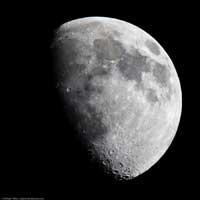Science experts 2009

As for scientific subjects, the issue that had the most impact last year on the media has undoubtedly been the flu A. In March we had knowledge of the first patients of this new flu. They appeared in Mexico, and seeing the ease with which the disease was spreading, everyone was altered. In fact, by June the World Health Organization had gone up the flu to a 6º alert state. This alert indicates that the flu spreads easily and can be served by a large number of inhabitants of a given region.
However, its easy diffusion does not mean that the virus is especially aggressive. In fact, the traditional flu virus is more aggressive. In general, for anyone who has no other problem in the respiratory system, the symptoms are milder than those of conventional flu, and many fewer people have died from flu A than traditional flu.
This theme, which has given so many twists and headaches, has been, according to the prestigious journal Nature, the most important scientific news of the year. Together with Nature, the other most prestigious journal in the world of science is Science, who has also given the list of the most important news.

Well, what Science has first placed has been Ardi, the fossil of a hominid found in Ethiopia, an individual of the species Ardipithecus ramidus. The ancestor of human beings lived 4.4 million years ago. It has been important news because they have gotten many pieces of bone from a single individual; in total they have found 125 fragments of skull, jaw, pelvis, hands and footwear.
Thanks to this, they have been able to carry out very deep studies and see the characteristics and behavior of the ancestors of the human being at that time. Normally the skeletons they find are not so complete, so the information obtained by archaeologists is usually much more limited.
Totally subjective
As can be seen, the main news of these two journals, considered as reference in scientific subjects, do not coincide at all. But that divergence goes beyond, because what for one is the most important news of the year, the other has not mentioned it in the decimal list that publishes each year. This shows that the criteria used to elaborate the lists are totally subjective.

The two lists of ten have only one common news: Discovery of water on the Moon. On October 9, during NASA's LCROSS mission, a probe and its rocket were thrown into a Moon crater. At four days, it was reported that most of the materials deposited by the shock were detected particles of water. The crater is located in an area that does not receive light from the Sun, and scientists have stated that it is easier for water to exist in those areas, since the low temperatures would not allow the evaporation of water that could exist.
This discovery has meant a great advance in the knowledge of the Moon. And it is that for a long time experts have thought that the Moon was only a dry and dark place. But it seems that the Moon still has secrets.
In addition to unraveling the secrets of the Moon, in 2010 scientists will work in other disciplines looking for answers to questions... and we counting what they find.
Published in Ortzadar
Buletina
Bidali zure helbide elektronikoa eta jaso asteroko buletina zure sarrera-ontzian











